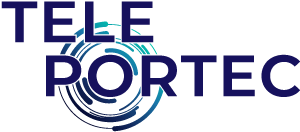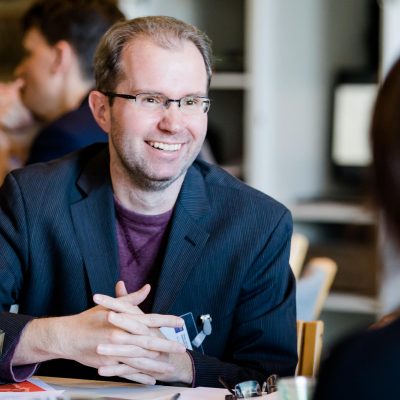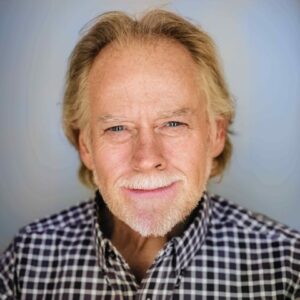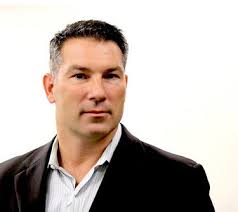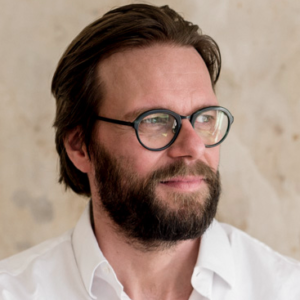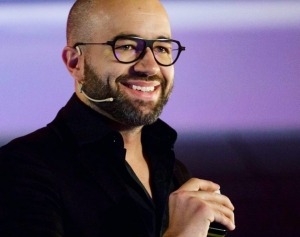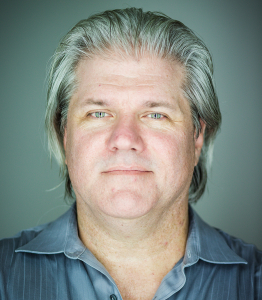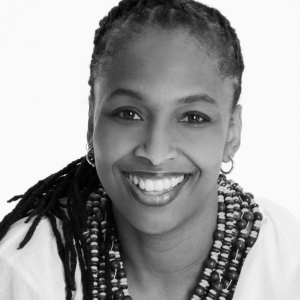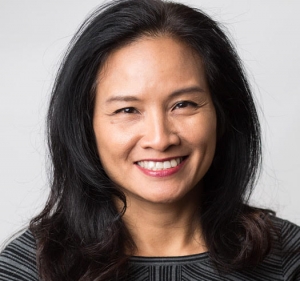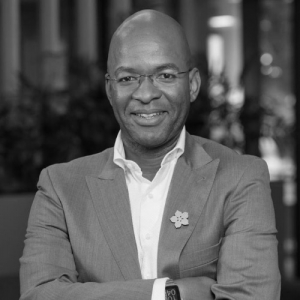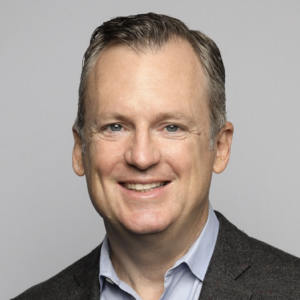Dr. David A. Bray has served in a variety of leadership roles in turbulent environments, including bioterrorism preparedness and response from 2000-2005, time on the ground in Afghanistan in 2009, serving as the non-partisan Executive Director for a bipartisan National Commission on R&D, and providing leadership as a non-partisan federal agency Senior Executive. He accepted a leadership role in December 2019 to incubate a new global Center with the Atlantic Council. He also provides strategy to both Boards and start-ups espousing human-centric principles to technology-enabled decision making in complex environments. He was also named a Senior Fellow with the Institute for Human-Machine Cognition in starting in 2018. Business Insider named him one of the top “24 Americans Who Are Changing the World” under 40 and he was named a Young Global Leader by the World Economic Forum for 2016-2021. From 2017 to the start of 2020, David served as Executive Director for the People-Centered Internet coalition Chaired by Internet co-originator Vint Cerf, focused on providing support and expertise for community-focused projects that measurably improve people’s lives using the internet. He also was named a Marshall Memorial Fellow and traveled to Europe in 2018 to discuss Trans-Atlantic issues of common concern including exponential technologies and the global future ahead. Later in 2018, he was invited to work with the U.S. Navy and Marines on improving organizational adaptability and to work with U.S. Special Operation Command’s J5 Directorate on the challenges of countering misinformation and disinformation online.
David enjoys creative problem solving. He began working for the U.S. government at age 15 on computer simulations at a high-energy physics facility investigating quarks and neutrinos. In later roles, he designed new telemedicine interfaces and space-based forest fire forecasting prototypes for the Department of Defense. From 1998-2000 he volunteered as a part-time crew lead with Habitat for Humanity International in the Philippines, Honduras, Romania, and Nepal while also working as a project manager with Yahoo! and a Microsoft partner firm. Dr. Bray then joined as IT Chief for the Bioterrorism Preparedness and Response Program at the U.S. Centers for Disease Control and Prevention, leading the program’s technology response to during 9/11, anthrax in 2001, Severe Acute Respiratory System in 2003, and other international public health emergencies. He later completed a PhD from Emory University’s Goizueta Business School and two post-doctoral associateships at MIT and Harvard in 2008.
David likes to be a digital diplomat and a “human flak jacket” for teams of change agents working in turbulent environments. He volunteered in 2009 to deploy to Afghanistan to help “think differently” on military and humanitarian issues and in 2010 became a Senior National Intelligence Service Executive advocating for increased information interoperability, cybersecurity, and protection of civil liberties. In 2012, he became the Executive Director for the bipartisan National Commission for Review of Research and Development Programs of the United States Intelligence Community, later receiving the National Intelligence Exceptional Achievement Medal. He received both the Arthur S. Flemming Award and Roger W. Jones Award for Executive Leadership in 2013. He also was chosen to be an Eisenhower Fellow to meet with leaders in Taiwan and Australia on multisector cyber strategies for the “Internet of Everything” in 2015. He is the author of 40+ academic papers and published publications.
David’s passions include complicated, near impossible missions involving humans and technology in challenging circumstances. Through the efforts of a team of “positive change agents”, he led the transformation of the Federal Communication Commission’s legacy IT with more than 207 different systems to award-winning tech. This included rolling-out new cloud-based IT that achieved results in 1/2 the time at 1/6 the cost. He was the recipient of the Armed Forces Communications and Electronic Association’s Outstanding Achievement Award for Civilian Government. He also received the global CIO 100 Award twice, which usually is awarded to private sector Fortune 500 companies, both in 2015 and 2017, for his transformational leadership in change-adverse settings. In 2019, he was invited to give the AI World Society Distinguished Lecture to the United Nations on UN Charter Day.
Dr. Bray’s passions include the Future of Work, Future of Governance, and the Future of Augmented Communities that maintain a human focus on collaboration, pluralism, and individual choices. Over the years for six different startups, he has served as President, Chief Strategy Officer, and Strategic Advisor roles. He accepted a role of Co-Chair for 2016-2017 with an IEEE Committee focused on Artificial Intelligence, automated systems, and innovative policies globally and has been serving as a Visiting Executive In-Residence at Harvard University since 2015 and as a Faculty Member giving talks on Impact and Disruption at Singularity University since 2017. He has been an invited keynote speaker to CEOs, world leaders, and crowds of more than 3,000 participants at events in India, Vietnam, Australia, Taiwan, Dubai, South Africa, Brazil, Colombia, Mexico, Canada, Belgium, Sweden, Switzerland, and the United Kingdom.
Sample Topics
Megatrends in Data, Tech, Space and Geopolitics for 2030, 2040 and 2050
Given our rapidly changing world, C-Suite leaders have an imperative to be positive “change agents” and help their organizations go beyond the status quo. The 7 billion networked devices on the planet in 2013 have doubled to 14 billion in 2015, and 2026 is forecasted to have more than 55 billion network devices globally on the planet – and in space – relative to only 8.2 billion people on the planet. The amount of data also is growing exponentially, such that by 2026 estimates suggest there will be more data than three times all the conversations we ever had for the entire history of human species. With these rapid changes, so too is the nature of leadership changing. This requires recognition of the exponential technology trends that have been growing in certain fields – to include data, tech, AI, cybersecurity, space, and geopolitics. This talk will provide leaders with awareness of the potential trends for 2030, 2040, and 2050 as well as action-oriented ways to be bold, brave, and benevolent for the future ahead.
An Entrepreneur’s and VC’s Guide to the Industrial Internet of Things
Includes an interactive card exercise where participants can remix possible financial investment and startup opportunities with the IIoT. With these rapid changes, so too is the nature of leadership changing. For the future ahead, it is important to address the various challenges that will multiply alongside the Industrial Internet of Everything.
A Practical Ethical Framework for Our Exponential Era
Our exponential era presents entrepreneurs and organizational leaders across multiple sectors with the challenges of unintended consequences even for companies that mean to do good. This talk will provide a brief history of the professions – the idea of community-monitoring and correcting because the subject matter was more complicated that what the average public could monitor. Then the OARS framework will be introduced that can help with addressing unintended consequences proactively. Specifically: (1) Obligations in this Context — what principles the entity believes about its relationship with its stakeholders, (2) Acknowledgements in this Context — what “known unknowns” may exist tied to transactions and relationships, (3) Responses to Obligations — what the entity will based on expressed Obligations, (4) Safeguards to Acknowledgements — what the entity will do based on expressed Acknowledgements.
Artificial Intelligence
Exponential changes in what machine learning, neural networks, and other forms of artificial intelligence are capable of equally are transforming the nature of work, leadership, and how organizations need to empower their employees to be positive #ChangeAgents. These transformations includes pairing humans with machines to encourage “augmented intelligence” where the strengths of both are amplified. Organizations themselves need to become learning, adaptive, and resilient, using sensors, data, and algorithms to achieve these goals. Recognizing there is no textbook for the future ahead, this talk will highlight the near- and mid-term trends for AI on the horizon and discuss new forms of leading and teaming to augment these data-driven, algorithmic capabilities.
Augmented Intelligence: Towards a Convergence of Human and Machine Collaborations
On 16 Jan 2019, the U.S. Intelligence Community announced the “AIM Initiative: A Strategy for Augmenting Intelligence Using Machines”. The announcement cited that the “pace at which data are generated, whether by collection or publicly available information, is increasing exponentially and long ago exceeded our collective ability to understand it or to find the most relevant data with which to make analytic judgments.” This talk considers what R&D and practical leadership activities need to be done to achieve successfully the goals of pairing humans with machines to augment intelligence capabilities. The talk will be both technically grounded and inspirational, seeking an interactive dialogue on what efforts are needed now to better understand human and machine collaborations at team, organizational, and societal levels for the future ahead.
Challenges of Confirmation Biases, Cognitive Easing, and Other Concerns
Humans may look back at our era and determine collectively our exponential era wasn’t ready for the internet’s impacts on how we interact as societies and how we share information. Participants will consider basic human rights in our digital era – and the challenges of confirmation biases, cognitive easing, and other concerns that give rise to the spread of misinformation out of context and other disruptive influence that polarize and create ‘social wedges’ impacting human communities and organizations. Looking towards the future, this talk identifies ways for open, pluralistic societies to overcome the challenges of us humans now connected globally without succumbing to surveillance capitalism, surveillance states, or censored societies that erode basic human rights associated with our pluralistic communities. President Lincoln is recorded as having said “I do not like that man. I must get to know him better” – which when applied to the 21st century means that all of us must find ways to engage with empathy, grace, and understanding for our digital future ahead.
Cyber-Resiliency
Exponential changes require organizations intentionally to design how they operate to decrease the time required to bounce back from unforeseen events. Our exponentially changing world is putting more people online and connecting more devices daily, which also makes it nearly impossible to forecast exactly how many new risks and potential vulnerabilities are being created in the process. This talk will focus on how each of us can be positive #ChangeAgents to respond quickly to a variety of events that may not typically fall under the domain of security, yet still require a prompt response to be resilient. For the future ahead, it is important to address the various challenges that will multiply alongside the Internet of Everything as well as consider how the public and private sectors must build bridges to develop resiliency for the Internet with academia, nonprofits, and the general public.
Exponential Organizations, the Internet of Things, and Big Data
Positive #ChangeAgents are leaders who “illuminate the way” manage friction of stepping outside the status quo. Technology is rapidly changing our world. The 7 billion networked devices on the planet in 2013 have doubled to 14 billion in 2015, and 2022 is forecasted to have more than 50 billion network devices globally relative to only 8 billion people on the planet. The amount of data also is growing exponentially, such that by 2022 estimates suggest there will be more data than twice all the conversations we ever had for the entire history of human species. With these rapid changes, so too is the nature of leadership changing. All organizations, sectors, and societies are feeling the impacts of these changes. We must adopt new leadership strategies to deliver results differently and better for private sector companies, non-profit organizations, educational institutions, public service at-large, and local community organizations. Technology is augmenting what people and communities can do, both in good and bad ways. So too must we think about how to navigate second- and third-order effects of the technologies we employ. This keynote will highlight strategies and examples of how each of us can be positive #ChangeAgents and help lead the way courageously in our period of rapid change. The ripple effects of what technologies empower us to do are spreading faster and at a broader global scale than ever before.
Practical Ethics Framework for Entrepreneurs and VC Investments
Puts forward a reusable framework where participants thought through their obligations, awareness of blindspots, responsibilities, and safeguards for ventures involve exponential technologies that can be misused in ways not intended or abused by outsiders. Organizations themselves need to become learning, adaptive, and resilient, using sensors, data, and algorithms to achieve their goals ethically in a rapidly changing world.
The Exponential Future of Work, Governance, and Leadership
Exponential technologies are transforming how we work, how we co-exist, and how we lead as positive #ChangeAgents. This session will explore some of the debates about what the future of work will be if exponential trends continue, as well as the ripple effects of such trends on how societies govern themselves in a networked era and what new strategies private or public sector leaders will need to employ to be effective. Come prepared to both learn and share your thoughts on the hard society-level questions for our shared exponential future ahead.
The Future of Governance, Resiliency, and Co-Existence
Exponential changes in the world bring new technologies that can potentially improve lives and livelihoods — yet may also have unforeseen side-effects that also impact individuals and communities. This talk will focus on how to consider governance in a world in which “just governments” or “just nation-states” may not be the future for the decade ahead; instead, each of us as positive #ChangeAgents may need to think of new networked ways of helping to govern why, where, when, and what outcomes new exponential technologies are incorporated in to societies.
The Future of Resilience, Security, and Governance
Our exponential era is creating ripple effects that impact how we co-exist as communities and societies. Some experts are concerned about what they call “surveillance capitalism” and others are concerned that open societies cannot survive waves of misinformation and disinformation. This talk will consider “quo vadis?” — specifically, we’ll explore where open pluralistic societies might want to go in the exponential era ahead, and what each of us, as positive #ChangeAgents, might want to do to help ensure a future that uplifts communities and societies around the world.
The Future of Work and the Future of Jobs
We are facing unprecedented technological change. By several estimates, the next 7 years will see more change than the last 20 years combined which will have ripple-effects on organizations, societies, and nations. Unlike past revolutions, this digital revolution probably will improve organizational productivity without needing more productive humans. Yet for us humans, jobs matter immensely. If humans sense too large an imbalance, they will destabilize national marketplaces and regimes globally. This talk will consider the big picture questions associated with the Future of Work and the Future of Jobs in the context of possible job creation and destruction, possible lag effects, and whether these trends will benefit everyone or be disproportionate in their effects. In the end, each of us as positive #ChangeAgents can help ensure the world as a whole does benefit from the expected future changes ahead.
Ushering in the Future: Tactical Steps Forward for Exponential Organizations
Often organizations can feel adrift in a sea of rapid changes, both technologically and globally, and at a loss for what tactical steps leaders can do to make sense and act in our changing world? All of us can do something small. Start talking about these issues and talk about these issues with a bent towards being a creative problem solver. So don’t admire the issue, put forward possible suggestions as a team, and even if they are only initial steps – move forward with benevolence, boldness, and bravery in a changing world. Organizations can usher in the future by overcoming barriers to action, innovation, and initiative – and this talk will provide tangible steps leaders can do.
What’s Real (and What’s Not) Regarding the Future of 5G, Wi-fi 6, and the of the Internet of Things
As the third decade of the 21st century starts, questions abound regarding what’s real (and what’s not) regarding the future of 5G, Wi-fi 6, and other next-generation ways of achieving near-ubiquitous connectivity and computing around the world. This talk will seek to de-mystify some of the hype and get down to brass tacks about what tactically is doable now in the longer-term with these technologies as organizations seek to embrace the internet of things.
Where Will We Be in 2045? Leading in Turbulence to Include Artificial Intelligence, the Internet and the Future of Data
This talk considers the people-centered opportunities and challenges occurring around the world. Originally given as a distinguished keynote to the United Nations, this talk will highlight that the further our world gets from remembering what happened in World War II – the more we become divided because we have forgotten just how bad things can be. Even with all the advances in technologies and social progress, we humans are returning to thinking the world is “zero sum”. We are missing that peace requires something beyond self-interest and if we’re not careful, we’re on the same ramp-up that was either the build-up to 1914 or 1939, though such conflicts will not be tanks, but other forms of harm and “loss”. This talk will focus both on how technology changes impact human societies – and how positive “change agents” can make a meaningful difference for the future ahead. As positive change agents, we can recognize the flaws of existing nation-states and international governance, and critique that they haven’t delivered – and at the same time be concerned that nature abhors a vacuum. Communities around the world need to develop hopeful, non-zero-sum narratives of what 2025, 2030, and beyond will be – and work to ensure social inclusion in delivering those visions.
Why CEOs Should Embrace Exponential Change, Collaborate, and Co-Existence
Given our rapidly changing world, C-Suite leaders have an imperative to be positive “change agents” and help their organizations go beyond the status quo. This requires recognition of the exponential technology trends that have been growing in certain fields. This also requires recognition of the new ways of collaboration and leadership required to address these changes. Most importantly, leaders must work to address a global need for both private and public sectors efforts to think non-zero sum when it comes to enterprising endeavors. This talk will discuss all these topics and provide leaders with people-centered approaches they can apply to be bold, brave, and benevolent for the future ahead.

